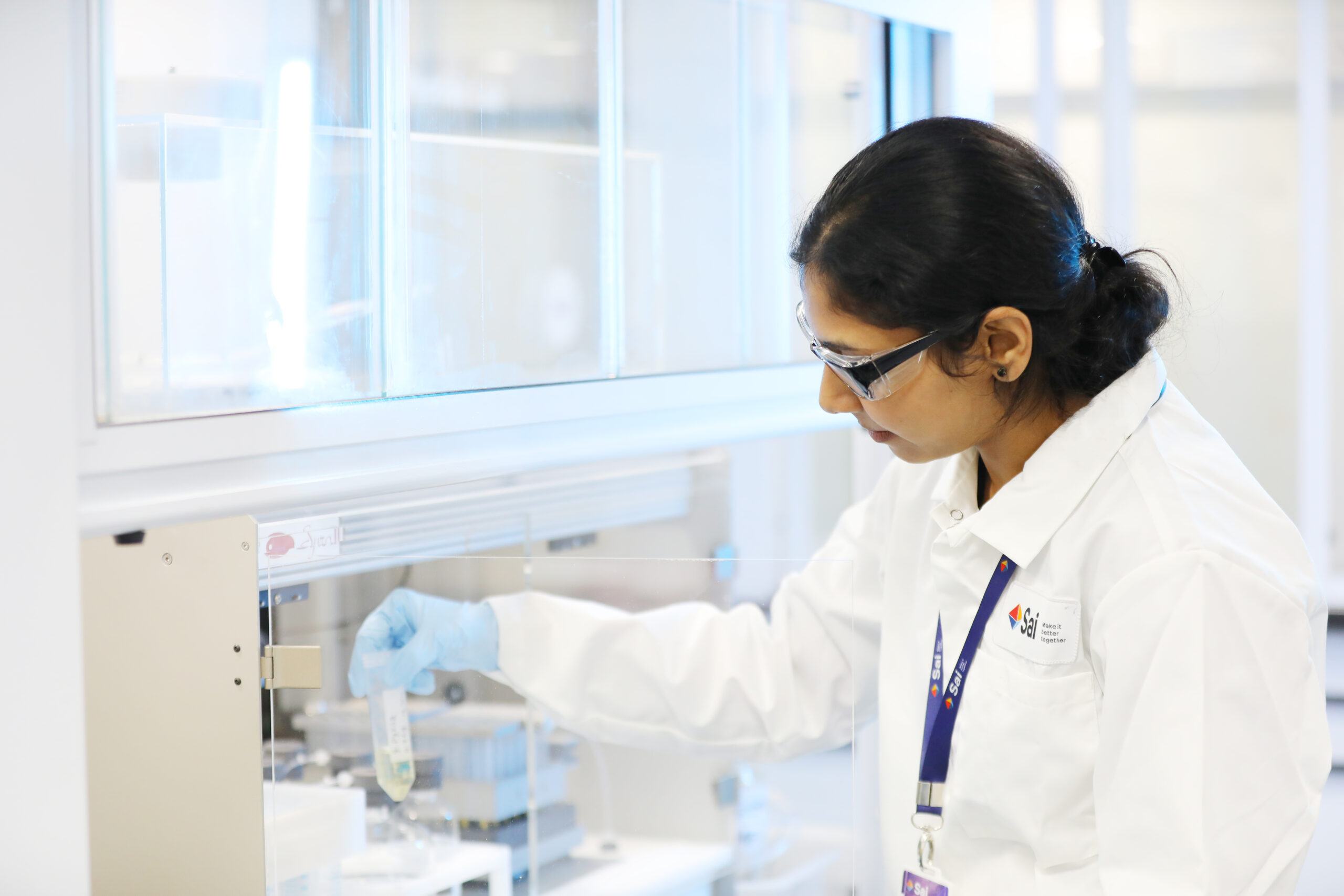Endometriosis is a painful and often debilitating condition in which tissue similar to the uterine lining grows outside the uterus. This can cause inflammation, chronic pain, and increase the risk of infertility, ovarian cancer, and endometrial cancer.
According to the World Health Organization, around 190 million women and girls globally are affected by endometriosis. Current treatments usually involve a mix of pain relievers, hormone therapy, and, in some cases, surgery. However, no cure exists yet. A review in the American Journal of Obstetrics and Gynecology (AJOG) noted that diagnosing the condition remains challenging due to underfunded and limited research, despite its widespread prevalence.
Nevertheless, as research into the biological mechanisms and drug targets for endometriosis expands, more biotech companies are stepping up with innovative treatment approaches. In honor of Endometriosis Awareness Month in March, here are seven companies at the forefront of developing promising therapies.
Ananda Pharma
Location: U.K.
Drug Candidate: MRX1
Technology: Cannabidiol
Ananda Pharma is conducting a randomized, placebo-controlled pilot study (ENDOCAN-1) to evaluate MRX1, an oral cannabinoid drug, in 100 women experiencing pelvic pain due to endometriosis. The trial spans 12 weeks.
MRX1 contains cannabidiol (CBD), known for its anti-inflammatory, analgesic, and antidepressant properties. It interacts with over 65 receptors and pathways in the body, including the endocannabinoid system (ECS), which regulates functions such as mood, memory, immune response, and pain perception.
By modulating pain and inflammation, MRX1 aims to reduce endometriosis-related discomfort. In December 2024, Ananda Pharma secured £100,000 ($129,169) in funding to support this research.
Kissei Pharmaceutical
Location: Japan
Drug Candidate: Linzagolix
Technology: GnRH Antagonist
Kissei Pharmaceutical, with a diverse pipeline addressing diseases such as Parkinson’s and bladder cancer, is advancing Linzagolix for the treatment of endometriosis and uterine fibroids.
Linzagolix is a GnRH receptor antagonist that lowers estrogen levels by inhibiting the release of follicle-stimulating and luteinizing hormones. This reduction may help suppress the growth of endometrial tissue.
Licensed to U.K.-based Theramex, Linzagolix was approved in the EU under the brand name YSELTY in December 2024. Phase 3 trials are ongoing globally.
A study revealed that 200 mg of Linzagolix combined with add-back therapy (ABT) significantly reduced both menstrual and non-menstrual pelvic pain. A lower 75 mg daily dose showed efficacy in reducing dysmenorrhea alone.
Hope Medicine
Location: China
Drug Candidate: HMI-115
Technology: Monoclonal Antibody
Hope Medicine is developing HMI-115, a monoclonal antibody that targets the prolactin receptor (PRLR), which is found in the endometrium and is linked to elevated prolactin levels in endometriosis patients—especially those facing infertility.
In a Phase 2 trial involving 142 patients across the U.S., Poland, and China, HMI-115 led to a 42% reduction in menstrual pain and a 50% reduction in non-menstrual pelvic pain. Most participants reported normal menstrual cycles.
The candidate is also being studied for androgenic alopecia.
Gesynta Pharma
Location: Sweden
Drug Candidate: Vipoglanstat
Technology: Small Molecule
Gesynta Pharma is tackling inflammation in endometriosis through vipoglanstat, a small molecule inhibitor of microsomal prostaglandin E synthase-1 (mPGES-1). This enzyme is elevated in inflamed tissues and drives the production of pro-inflammatory prostaglandin E2 (PGE2).
Currently in Phase 2 trials, vipoglanstat has shown promise in reducing pain and lesion size in preclinical studies. In trials for systemic sclerosis (which shares some inflammatory pathways), it cut PGE2 levels by 57%, suggesting potential for endometriosis as well.
In early 2025, Gesynta raised SEK 304 million ($30.09 million) in Series B funding to continue development.
TiumBio
Location: South Korea
Drug Candidate: TU2670
Technology: GnRH Antagonist
TiumBio is developing TU2670, an oral GnRH antagonist aimed at treating endometriosis and uterine fibroids. Unlike injectable GnRH agonists, TU2670 maintains hormone suppression without pushing estrogen to menopausal levels, potentially reducing severe side effects like bone loss.
The drug is currently in Phase 2a clinical trials in five European countries. TiumBio has partnered with Deawon Pharma in South Korea and Hansoh Pharma in China to co-develop and commercialize TU2670.
In 2022, the company secured a $170 million licensing deal with Hansoh and earlier raised KRW 38.5 billion ($26.19 million) to support its pipeline.
Viramal
Location: U.K. and Sweden
Drug Candidate: VML-0501
Technology: Synthetic Steroid
Viramal specializes in women’s health and is developing VML-0501, a synthetic steroid formulation of danazol administered trans-vaginally. This delivery method allows the drug to act directly in the pelvic cavity, reducing systemic side effects.
VML-0501, now in Phase 2b trials, targets hormone regulation, reduces ectopic endometrial tissue, and may rejuvenate ovarian function, potentially improving fertility outcomes.
Endometriosis Drug Development: Early-Stage R&D Expands
Several biotech companies are making strides in preclinical research:
- Temple Therapeutics (U.S.): Its candidate TTX334Dx targets fibrotic cells—the root of endometriosis—and also has a biomarker-based diagnostic version.
- Flightpath Biosciences (U.S.): FP-300 is an antibiotic that targets Fusobacterium nucleatum, a bacterium linked to endometriosis.
- Celmatix (U.S.): Its immunotherapy reprograms immune cells and promotes lesion regression using a JNK inhibitor.
- ValiRx (U.K.): VAL-301 is a reformulated cancer drug designed to inhibit hormone-driven endometrial growth.
- Fimmcyte (Switzerland) and BCI Pharma (France) are optimizing candidates for endometriosis.
- Gynica (Israel) has recently entered clinical trials with cannabinoid-based treatments.
According to Grand View Research, the global endometriosis treatment market was valued at $1.76 billion in 2024 and is projected to grow at a compound annual growth rate (CAGR) of 12.25% over the next five years. While challenges remain, the current wave of preclinical and clinical innovation is laying the groundwork for transformative care.





